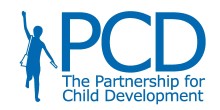 Documents
Documents  USAID report - PERMACULTURE DESIGN FOR ORPHANS AND VULNERABLE CHILDREN PROGRAMMING
USAID report - PERMACULTURE DESIGN FOR ORPHANS AND VULNERABLE CHILDREN PROGRAMMING
| Details for |
| Property | Value |
| Name: | USAID report - PERMACULTURE DESIGN FOR ORPHANS AND VULNERABLE CHILDREN PROGRAMMING |
| Description: | From the Case Study Series from the United States Agency for International Development (USAID)'s AIDSTAR-One (AIDS Support and Technical Assistance Resources, Sector 1, Task Order 1), this technical brief explores the strategy of permaculture as a "promising development approach for addressing food and nutrition insecurity for orphans and vulnerable children (OVC)". The term "permaculture" was coined in the 1970s by two Australian ecologists; it is derived from the words "permanent agriculture" and emphasises sustainable and regenerative agriculture practices. In the context of OVC programming, permaculture is designed to help guide communities toward permanent solutions for food and nutrition security, while ensuring that these options exist harmoniously within their environment. As detailed here, permaculture is relevant to OVC in the context of HIV for reasons such as this: "When parents die prematurely, knowledge and skills relating to agriculture, food, health, and culture are often not transferred to children. Bringing permaculture into school curricula helps recover this knowledge base among inschool children....It supports the delivery of important lessons on taking responsibility for one's actions and acting ethically toward other people and the environment. Permaculture lessons emphasize links between growing food; dietary diversity; nutrition; water, sanitation, and hygiene (WASH); and healthy (or 'positive') living. Finally, the hands-on nature of permaculture lessons lend itself to be taught to children, youth, and adults of all levels of literacy." This report details through words and images the process of applying the permaculture design process in schools around the world. The goal is to turn the school grounds into "living classrooms" through a number of steps outlined in the report. |
| Author: | USAID |
| Publisher: | USAID |
| Publication Year: | 2012 |

